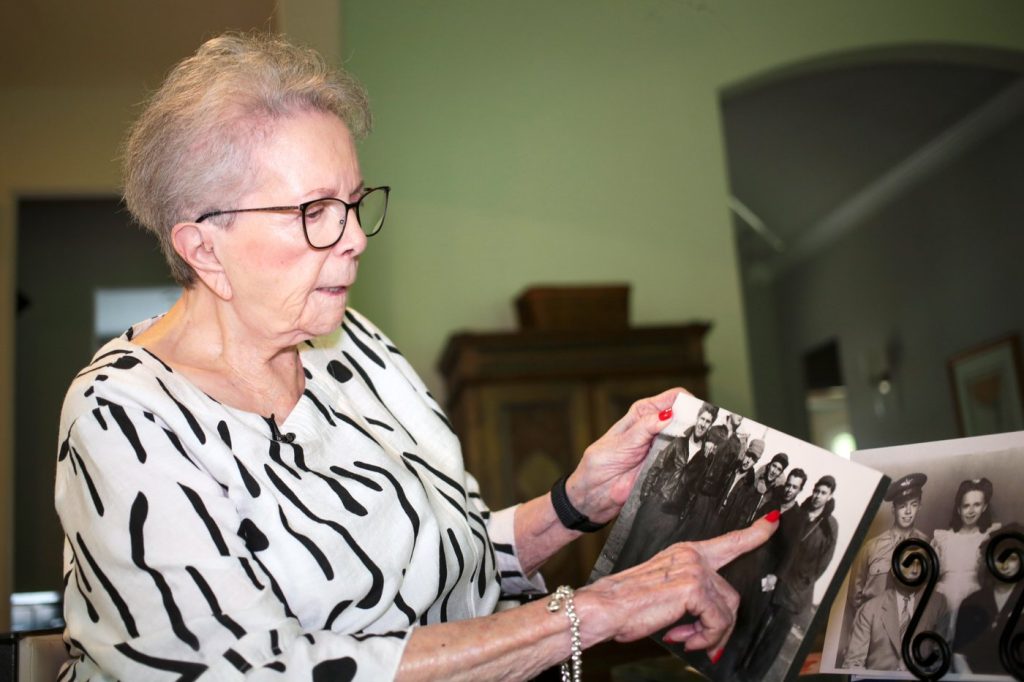DALLAS (AP) – June West Brandt, 93, has spent decades remembering her older brother, Staff Sgt. William Durham "W.D." West Jr., who was killed during World War II. West, an artistic soul who loved playing boogie-woogie on the piano, has remained a significant figure in Brandt's life. Recently, Brandt discovered that her brother is also honored by a Dutch couple, Lisa and Guido Meijers, who frequently visit his marker at the Netherlands American Cemetery in Margraten.
Brandt expressed her joy at this connection, noting how wonderful it is to know that someone is taking the time to remember her brother. This relationship was established through a new initiative aimed at connecting family members of U.S. service members buried in the Netherlands with the Dutch citizens who have adopted their gravesites. The project was inspired by Robert Edsel, the author of "The Monuments Men," whose latest book, "Remember Us," highlights the adoption program at the Margraten cemetery.
The initiative created the Forever Promise Project, a searchable database that links American families to their Dutch adopters. Edsel emphasized the importance of forging these connections and hopes to increase the number of families engaged in this meaningful remembrance. Ton Hermes, chairman of the Foundation for Adopting Graves American Cemetery Margraten, shared that while all 8,300 graves and 1,700 markers at the cemetery have adopters, only about 20% to 30% are in contact with the service members' families.
The Meijers couple adopted West's marker some years ago, knowing minimal details about him. However, their vibrant conversations with Brandt revealed that her brother was not only a soldier but also a creative individual who shared a close bond with her during their childhood in DeRidder, Louisiana. Brandt recalled, "We loved being together, so it was very hard when he left." Her daughter, Allison Brandt Woods, also expressed that it brings her comfort to know that the Meijerses honor West's memory by visiting his marker with flowers each month.
The Netherlands was liberated by Allied forces in September 1944, following years of Nazi occupation, and the cemetery serves as a powerful reminder of that past. Lisa Meijers highlighted the importance of honoring the sacrifices made by the individuals buried there. The couple, who have a one-year-old son, take pride in visiting West's marker regularly, ensuring his memory remains alive for future generations.
Hermes remarked on the high demand for the adoption program, noting there is a waiting list for those wishing to adopt a grave or marker. Since the formal adoption process began in 2008, many graves have been lovingly cared for by the same families over the decades. Frans Roebroeks, secretary for the Dutch adoption foundation, recounted the origins of the program which took shape after World War II, as local leaders sought a way to express gratitude to their liberators.
As of now, over 300 American families have reached out to establish contact with their adopters through this initiative. Edsel mentioned that this is just the beginning of connecting many more families with the stories of their loved ones who made the ultimate sacrifice. Ultimately, this effort not only honors the memories of service members like William Durham West Jr. but also fosters a unique transatlantic bond between American families and the Dutch people who cherish their sacrifices.










